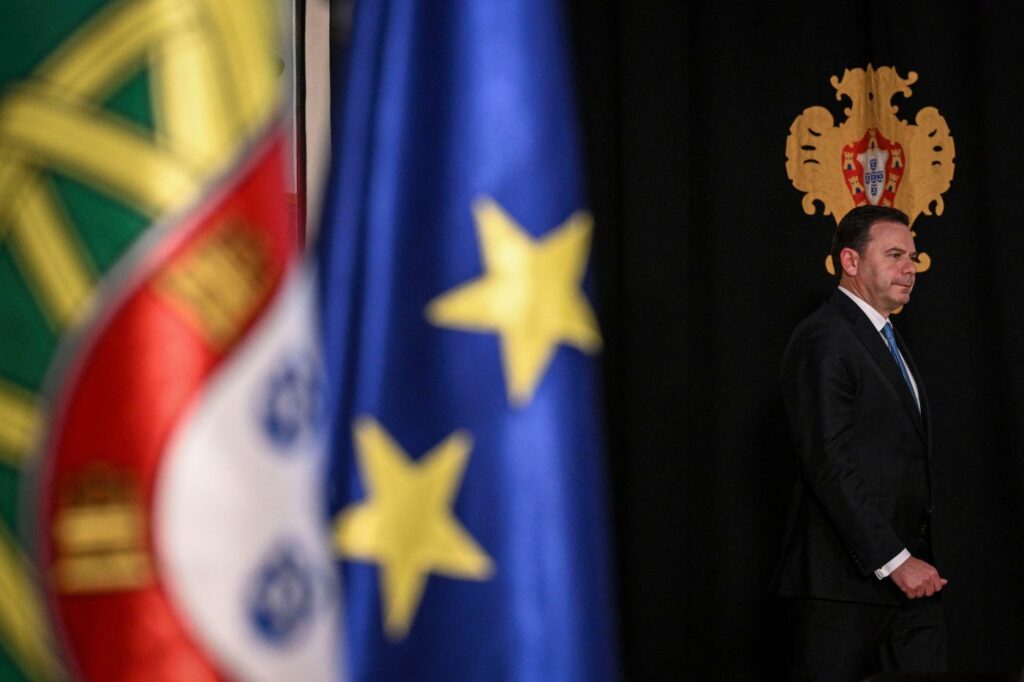
Portugal’s center-right leader Luis Montenegro was named prime minister after his coalition’s narrow election win this month, presenting him with the challenge of trying to govern with a minority administration.
Montenegro has a chance to strengthen his position by forging a deal bringing in far-right party Chega, but he’s so far ruled out an agreement to get its backing. The populist party, led by Andre Ventura, grabbed much of the spotlight in the March 10 vote, when it quadrupled its number of parliament seats.
The lack of a majority will make it harder for Montenegro’s new government to push through the transformative measures his party says are needed to strengthen the economy and boost living standards. He may be forced to compromise on key policies and budgets to try to get support in parliament.
Montenegro’s AD alliance won the most seats in the election, narrowly beating the Socialists, who’ve governed for the past eight years.
President Marcelo Rebelo de Sousa named Montenegro, 51, as premier early on Thursday after meeting all political parties. Minority governments in Portugal have tended to be short-lived. In 50 years of democracy, only two have survived a full four-year term.
Montenegro said he’ll present his ministers to the president on March 28. The new government will be sworn in on April 2, he told reporters after meeting the president.
No deal
Ventura said Monday that Montenegro can’t ask him to vote in favor of a budget without wanting to negotiate with his party. The Chega leader said he’ll keep pushing for an agreement.
A day later, Socialist leader Pedro Nuno Santos said it’s “practically impossible” that his party would agree with an AD government’s 2025 budget proposal, due to be presented in October. Still, the Socialists may do deals on specific issues, such as an amendment to this year’s budget to improve the wages of teachers and some other public workers.
Montenegro has said that he hopes the Socialists and Chega won’t join forces to block the new government. Santos says the Socialists won’t support the AD, but they also won’t back any motions to oust the group from office immediately.
The change in government is unlikely to mean a radical shift in fiscal policy. While the AD wants to cut some taxes, it also aims to keep lowering the country’s debt ratio. That’s been a focus for successive administrations since the euro-area debt crisis, when Portugal needed a bailout.
Montenegro has led the PSD, the main party in the AD coalition, since July 2022. While he’s never served in government, he was the PSD’s parliamentary leader from 2011 to 2017, when it was in power implementing the bailout program.
During a February debate, Santos accused Montenegro of lacking experience.
“I was coordinating a government action that saved Portugal from bankruptcy,” Montenegro said in response.
_____
(With assistance from Henrique Almeida.)
___
©2024 Bloomberg L.P. Visit bloomberg.com. Distributed by Tribune Content Agency, LLC.
